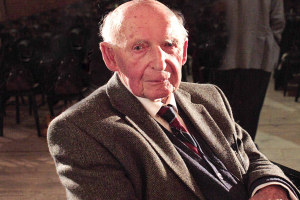Ashoke Sen has won the $3m (£1.9m) Fundamental Physics Prize, the largest science award. Ashoke Sen is a rather reclusive Indian particle physicist working from at the Harish-Chandra Research Institute in Allahabad.

Sen is probably best known for the Sen conjecture; in string theory, tachyonic states imply an instability of the D-brane to which the (open) string is attached [2]. This means that the system decays to a stable set of closed strings or D-branes. The end product of this spontaneous decay is known as a tachyon condensate.
These tachyon condensates were a very active area of research about a decade ago. As far as is known, Sen’s conjecture seems to be correct.
Sen also made great contributions to the notion of S-symmetry in string theory [1]. This duality, also known as strong–weak duality. An S-duality transformation maps states and vacua with coupling constant g in one theory (either a QFT or a string theory) to states and vacua with coupling constant 1/g in the dual theory. As this transformation maps strong coupling to weak coupling it allows perturbation theory to be applied to a strongly coupled theory.
Sen has 246 papers and preprints, of these 56 have over 100 citations*.
* http://inspirehep.net
References
[1] Sen, Ashoke (1994). “Dyon – monopole bound states, selfdual harmonic forms on the multi – monopole moduli space, and SL(2,Z) invariance in string theory”. Phys. Lett. B329: 217–221. arXiv:hep-th/9402032
[2] Sen, Ashoke (1998). “Tachyon condensation on the brane antibrane system”. JHEP 8: 012. arXiv:hep-th/9805170
Links
